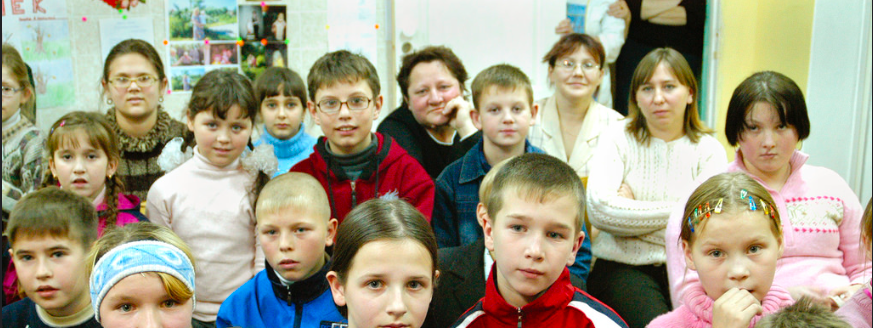THЭ VЭRΔICT: The Dima Yakovlev Law

The Dima Yakovlev Law: Orphans, Abuse and Political Stratagem
July 8th 2008: Dimitri Yakovlev, renamed Chase Harrison, is accidentally left strapped in a hot car by his adoptive father for 9 hours and dies of heatstroke.
November 16th 2009: Sergei Magnitsky dies inside Moscow’s Butyrka prison with suspicions of torture and beatings linked to his cause of death.
These two significantly different tragedies would become enmeshed in a classic power struggle between the US and Russia by 2012. On the 6th of December 2012 amid re-growing tensions between the two nations, the United States Senate passed a house version of the Sergei Magnitsky Act to impose visa and banking restrictions on Russian individuals implicated in human rights abuses. The bill’s name served as an obvious dig at the questionable circumstances of Magnitsky’s death. In a classic case of using tragedy for political retaliation, the Russian Duma passed the Dima Yakovlev Law in December of the same year under the guise of protecting its own citizens from American human rights abuses. Amongst other restrictions the law outright prohibited American citizens from adopting Russian orphans. The European Court of Human Rights has condemned the bill and ordered Russia to pay compensation to the plaintiffs. At the time of its inception approximately 20,000 people marched in Moscow to protest the law and to protect those who became known among activists as Russia’s forgotten children.
I should start by pointing out that although many consider political reaction to be the catalyst for this law, the cases used to justify the passing of the law are grounded in truth. Several stand-out cases of American couples adopting Russian children have ended in horrid tales of abuse and neglect. From little Masha Allen’s horrid ordeal at the hands of her pedophilic adoptive father to Maksim Kuzmin being found dead with countless bruises marring his body, the Duma had substantial shocking fodder to justify passing this law. In fact, Russian media outlets report considerable support for the ban amongst Russian citizens with these abuse cases cited as principle arguments as well as preserving traditional family values.
Specifically, Dima Yakovlev’s death and his adoptive father’s successive trial back in 2012 came under intense scrutiny by the Russian people. When Miles Harrison was acquitted from charges of involuntary manslaughter, national indignation ensued. Under Virginia Law, for an act to be considered as involuntary manslaughter it must be characterized by “negligence so gross, wanton and culpable as to show a callous disregard for human life”. Whatever we are to think about how unfathomably forgetful someone must be to leave an infant in a hot car for nine hours, Harrison’s heart wrenching testimony and broken disposition throughout the hearing disproved notions of a ‘callous disregard for human life’ and so he was not charged. This was met with a substantial outcry in Russia, where rhetoric highlighted the existing tensions between East and West. The prevalent statement of attack that was later used to fuel the adoption ban was “Whenever one of our children dies in the west it’s always considered an accident”. When Maxim Kuzmin’s adoptive parents were also acquitted after the adoption ban had come into fruition, the statement gained momentum.
But do rhetoric and some prominent cases justify a blanket ban on adoption that could give orphaned children a chance of a happy family home? The law’s critics counter that if this was done to ensure that Russian orphans were given to responsible and loving families, restrictions and protective measures on adoption would have been preferable to an all out ban. Out of the thousands of Russian children adopted by U.S families, only 19 have been found to have died of abuse and neglect. This figure should certainly be taken into consideration when evaluating the adoption system as a whole but it pales in comparison to the sheer number of orphans in Russia that are unable to get the proper physical and mental care they need from their orphanages.
Despite the kind hearted individuals spread out among these institutions, the orphanages tend to be overworked and to lack necessary equipment and care. In 2014, Human Rights Watch conducted over 200 interviews and produced a 93 page report on the state of Russian orphanages that tells a woeful tale of institutionalized violence and negligence. The research includes reports of the orphanages staff beating children, injecting them with sedatives and even sending them to psychiatric hospitals for weeks at a time in an attempt to force compliance and good behaviour. As a result of all this combined with the severe lack of funds many orphanages face, many children that spend time in Russian orphanages face developmental and psychological issues. In fact, both Dimitri Yakovlev and Maxim Kuzmin were described as behind in their development by their adoptive families.
When bearing all this in mind and coupling it with the fact that this law came into effect four years after its namesake’s death yet directly after the Magnitsky Act, its use for political stratagem becomes blatantly clear. Children who know nothing about profit and political power plays should not be used to further either one of them. Since the law’s conception, Russian officials have shown a willingness to lift the ban and alter the terms of the law in the past, provided the US makes concessions of their own. So far attempts at renegotiation have been unsuccessful. Will the two countries push past years of cold, political enmity and come to a compromise for the sake of the foster family bleakly scrolling through adoption terms and the child that sits alone in its cot and longs for a loving family? The Jury is unfortunately still out on this one.
Edited by Gracie Webb
